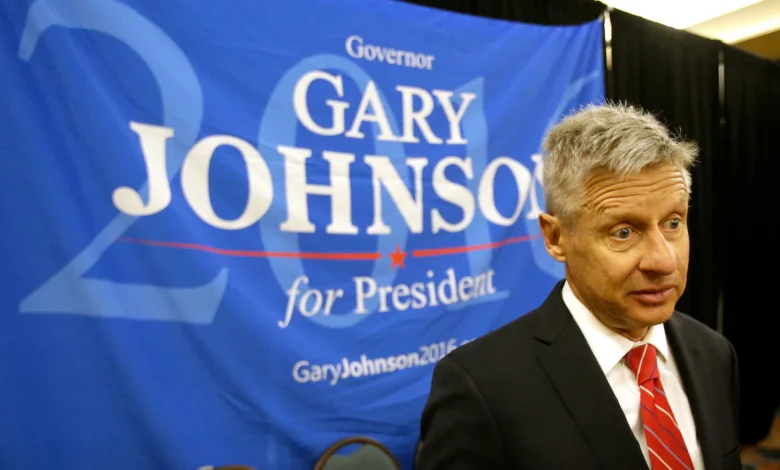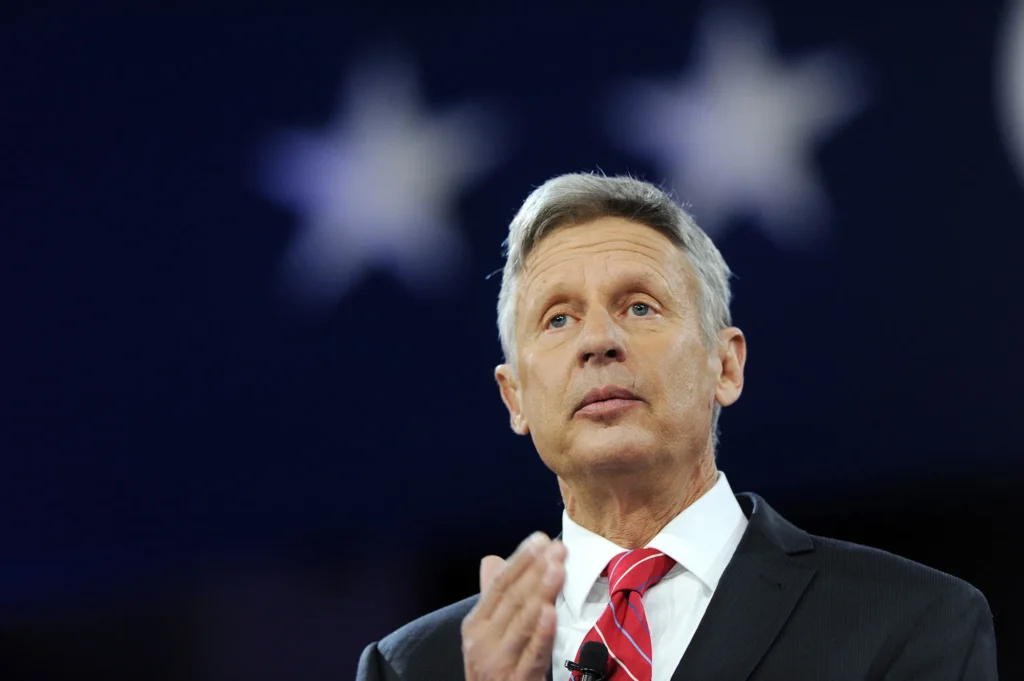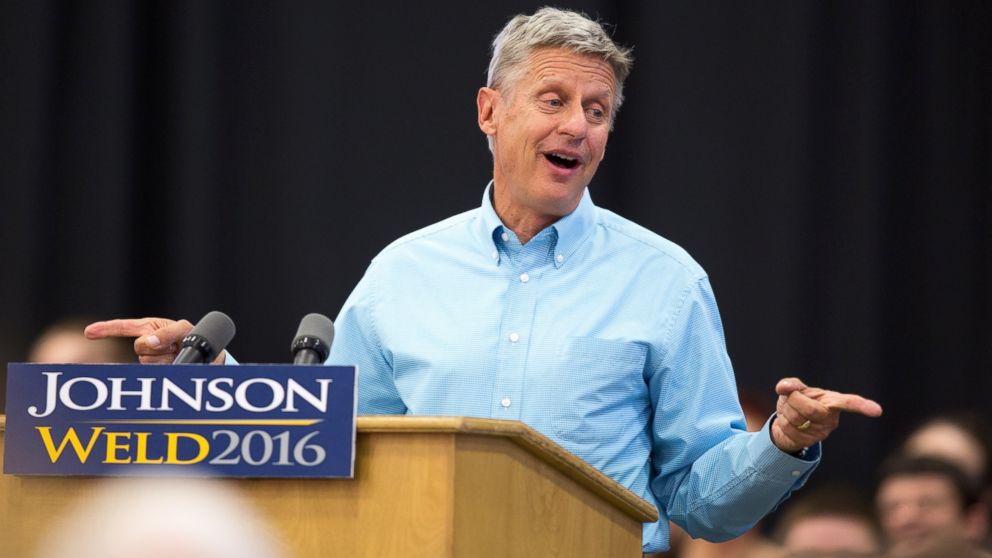Gary Johnson: A Comprehensive Look at the Libertarian Leader and Former Presidential Candidate

Gary Johnson, a name synonymous with libertarian politics in the United States, has left an indelible mark on American political discourse. From his tenure as the 29th Governor of New Mexico to his influential runs for the presidency, Johnson’s career has been defined by his advocacy for small government, fiscal responsibility, and non-interventionist foreign policies. This in-depth exploration delves into his background, political journey, key policies, and lasting legacy.
Early Life and Career
Gary Earl Johnson was born on January 1, 1952, in Minot, North Dakota. Raised in a middle-class family, he developed an early interest in business and public service. After high school, he attended the University of New Mexico but later transferred to the University of Colorado, where he studied geology. However, his focus shifted to entrepreneurship, and he built a successful construction company, GAF Industries, which laid the foundation for his financial independence.
Johnson’s entry into politics began in the 1980s when he was elected as the Mayor of Albuquerque in 1978. His pragmatic approach and focus on efficiency earned him a reputation as a effective leader. This success propelled him to the governorship of New Mexico in 1994, where he served two terms as a Republican before switching to the Libertarian Party in 2003.
Governorship of New Mexico: A Bipartisan Approach
Johnson’s governorship (1995–2003) is often highlighted as a period of bipartisan collaboration and fiscal conservatism. During his two terms, he prioritized balancing the state budget, reducing taxes, and promoting education reform. His signature achievement was the Education Excellence Act, which aimed to improve school funding and accountability.
Despite being a Republican, Johnson was known for his moderate stance on social issues. He supported environmental protections, including preserving New Mexico’s natural landscapes, and advocated for sensible gun policies. His ability to work across the aisle demonstrated his commitment to practical solutions over partisan gridlock.
Presidential Campaigns: 2012 and 2016

Gary Johnson’s national profile rose significantly during his Libertarian presidential campaigns in 2012 and 2016. His runs resonated with voters disillusioned with traditional politics, particularly those advocating for less government intervention, ending the war on drugs, and reducing military spending.
2012 Presidential Bid
In 2012, Johnson secured the Libertarian nomination with a focus on trimming the federal budget, legalizing marijuana, and opposing foreign military interventions. Though he failed to win electoral votes, he garnered over 2 million votes, the third-highest tally for a Libertarian candidate at the time. His campaign highlighted the growing appeal of outsider politics.
2016 Presidential Bid: Breaking Records
Johnson’s 2016 campaign was his most impactful. Running on a platform of ending government overreach and prioritizing personal liberties, he received over 4 million votes, the most ever for a Libertarian candidate in U.S. history. His running mate, former CEO Bill Feynman, emphasized fiscal responsibility and criminal justice reform.
The campaign gained attention during the 2016 presidential debates when Johnson was excluded from the stage due to strict polling thresholds set by the Commission on Presidential Debates (CPD). This sparked criticism about the CPD’s bias toward major-party candidates. Johnson’s memorable line, “What the hell?” during a 2015 interview, became a viral moment, underscoring his candid and straightforward style.
Key Policy Positions
Gary Johnson’s policies reflect a classic libertarian philosophy, emphasizing individual freedom, limited government, and non-interventionism.
- Fiscal Responsibility:
Johnson advocates for significant cuts to federal spending, including entitlements, defense, and social programs. He proposes a “fair tax” replacement of the income tax with a fair, flat sales tax to eliminate loopholes and simplify the system. - Drug Policy Reform:
A staunch proponent of ending the War on Drugs, Johnson has called for the legalization of marijuana and the decriminalization of other substances. He argues that drug prohibition fuels crime, addiction, and government overreach. - Foreign Policy:
Johnson opposes military interventions and advocates for a non-interventionist approach. He criticized the Iraq War and supports withdrawing U.S. troops from overseas commitments to focus on domestic priorities. - Social Issues:
While personally conservative, Johnson supports social liberalism, including abortion rights, same-sex marriage, and immigration reform. He believes these issues should be decided at the individual or state level. - Healthcare:
He proposes replacing the Affordable Care Act (ACA) with a system of individual responsibility, health savings accounts, and market-driven solutions to reduce costs and increase accessibility.
Post-Campaign Influence and Legacy

Though Johnson has not held office since 2003, his influence persists in American politics. His campaigns have elevated the Libertarian Party’s visibility and inspired a new generation of voters to question the status quo.
Impact on the Political Landscape
Johnson’s success in attracting disaffected voters from both the Democratic and Republican parties highlights the demand for alternatives to the two-party system. His 2016 campaign, which siphoned votes from Hillary Clinton and Donald Trump in key states, underscores the role of third-party candidates in shaping election outcomes.
Advocacy Work
After his presidential bids, Johnson has remained active as a public speaker and commentator. Through his organization, Our America, he continues to advocate for reduced government spending, drug policy reform, and open debate in politics. He also serves as a prominent voice for election reform, including debates that include third-party candidates.
Criticisms and Controversies
Johnson’s candidacy has not been without criticism. Some argue his non-interventionist stance could leave the U.S. vulnerable to global threats. Others question his positions on social security and Medicare reform, fearing they could disproportionately affect vulnerable populations. Additionally, his 2016 campaign faced scrutiny over his selection of running mates, including Feynman, who lacked political experience.
Gary Johnson’s Enduring Relevance
In an era of polarization, Gary Johnson’s message of limited government and individual empowerment continues to resonate. His emphasis on critical thinking, personal responsibility, and systemic change aligns with a growing segment of Americans seeking alternatives to traditional politics.
Lessons from His Career
- Bipartisanship Matters: Johnson’s success in New Mexico stemmed from his ability to work across party lines, a skill increasingly rare in today’s hyper-partisan climate.
- Auditing Government: His focus on fiscal responsibility serves as a reminder of the need to address national debt and inefficient government programs.
- Embracing Outsider Perspectives: Johnson’s campaigns prove that voters are open to new ideas and willing to challenge the political establishment.
Conclusion
Gary Johnson’s journey from businessman to governor to presidential candidate reflects a lifelong commitment to reducing government intrusion and empowering individuals. While his policies remain polarizing, his influence on American politics is undeniable. As debates over fiscal responsibility, drug reform, and foreign policy continue, Johnson’s legacy serves as a reminder of the power of principled, pragmatic leadership.
Whether viewed as a visionary or a outsider, Gary Johnson has undeniably shaped the conversation about what it means to govern in the 21st century. His story invites reflection on the possibilities of a political system that prioritizes solutions over partisanship.



